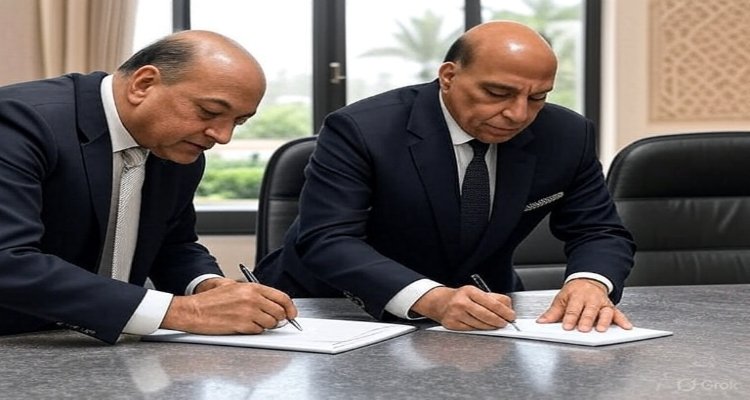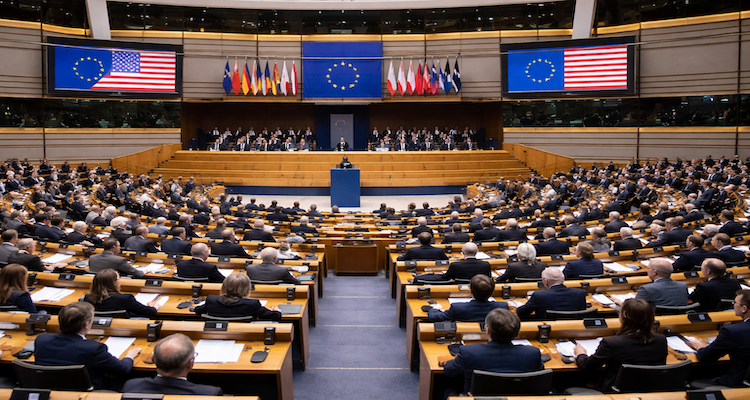India, Morocco Ink MoU to Deepen Defence Ties

India and Morocco have signed a new defence cooperation MoU in Rabat, paving the way for stronger military, industrial, and strategic ties across key security areas.
Introduction
In a significant diplomatic and strategic move, India and Morocco have signed a Memorandum of Understanding (MoU) to bolster their defence partnership. The agreement, inked on September 22 in Rabat following talks between India’s Defence Minister Rajnath Singh and Moroccan Defence Minister Abdeltif Loudiyi, marks a new chapter in the two countries’ growing security cooperation. The MoU is designed to create a robust institutional framework for joint military collaboration, industrial cooperation, and technical exchanges at a time when both nations are recalibrating their defence strategies in an increasingly complex security environment.
Context & Background
Historical ties between India and Morocco stretch back centuries, with cultural and trade connections dating as far back as the travels of the 14th-century Moroccan explorer, Ibn Batuta, to the Indian subcontinent. In modern history, India extended diplomatic support to Morocco’s independence efforts and recognized the North African country in June 1956, just days after it secured freedom from colonial rule. Formal diplomatic relations were established a year later in 1957, laying the foundation for steady ties.
Over the decades, India and Morocco have built a cordial relationship spanning trade, political cooperation, and cultural exchanges. The momentum intensified after King Mohammed VI met with Prime Minister Narendra Modi in New Delhi in 2015, energizing bilateral engagement. More recently, trade links have expanded significantly, with bilateral exchanges climbing to $2.55 billion in FY 2024-25, up from $2.4 billion in the previous year. India’s exports—including mobile phones, petroleum products, specialty chemicals, and honey—have grown over 105 percent in just two years, while Morocco continues to supply India with phosphate, phosphoric acid, and metallic ores.
Against this backdrop of accelerating economic and diplomatic engagement, the defence partnership has emerged as the latest frontier of cooperation.
Main Developments
The MoU signed in Rabat provides for an ambitious and wide-ranging cooperation platform between India and Morocco’s armed forces. Key areas include:
-
Defence Industry Collaboration: Joint projects, co-development opportunities, and industrial linkages to boost defence manufacturing.
-
Joint Exercises and Training: Sharing of military expertise through training programs and combined drills.
-
Strategic Security Cooperation: Collaboration on counter-terrorism, maritime security, cyber defence, and peacekeeping missions.
-
Military Medicine & Expert Exchanges: Building capacity in areas like military healthcare and technical know-how.
Both sides emphasized that the MoU goes beyond symbolic engagement, laying the foundation for practical partnerships that will enhance their defence preparedness and encourage long-term military-industrial ventures.
Expert Insight & Public Reaction
Defence analysts note that the new pact reflects India’s broader outreach to Africa as part of its strategic priorities. Dr. Ananya Sinha, a security expert at the Observer Research Foundation, observed, “India’s engagement with Morocco is emblematic of a shift in New Delhi’s Africa policy—moving from trade-centric ties to security cooperation in response to global threats like terrorism, piracy, and cybersecurity risks.”
Moroccan commentators, meanwhile, have welcomed the deal as a recognition of the country’s strategic importance, bridging Africa, Europe, and the Atlantic. Media coverage in Rabat highlighted the MoU as a vote of confidence in Morocco’s defence modernization efforts.
Indian industry players are also closely watching the development. Since Morocco is a key supplier of phosphates, critical for producing fertilizers, the extension of ties into the defence sector opens new corridors of trust that might smoothen cooperation across other sensitive sectors.
Impact & Implications
The MoU is poised to impact multiple stakeholders:
-
For India: Strengthened presence in North Africa, greater access to strategic maritime routes in the Atlantic, and new opportunities for its burgeoning defence industry.
-
For Morocco: Enhanced capacity building, modern defence technologies, and closer ties with a rising global power like India.
-
For Africa & Beyond: As Morocco often plays a mediation role in regional conflict and counter-terrorism initiatives, the collaboration could enhance stability from the Sahel to the Mediterranean.
The defence partnership also aligns with India’s ambitions to play a larger role in UN peacekeeping and global security operations, areas where Moroccan forces have traditionally been active. With the new institutional framework, possibilities of co-deployment in international missions may emerge.
Conclusion
The signing of the India-Morocco MoU represents more than just a ceremonial agreement; it is a symbol of a shifting global security order where emerging powers seek strategic depth beyond their immediate regions. By expanding ties across defence industry collaboration, training, counter-terrorism, and cyber defence, New Delhi and Rabat are setting a roadmap that blends history with strategic necessity. As both countries navigate complex regional challenges, their new defence partnership underscores a shared determination: to build resilience, improve preparedness, and strengthen a longstanding friendship that traces its roots back to centuries of cultural exchange.
Disclaimer : This article is based on publicly available official statements, trade data, and historical records. It is intended for informational and journalistic purposes only and does not represent official government policy or position.










